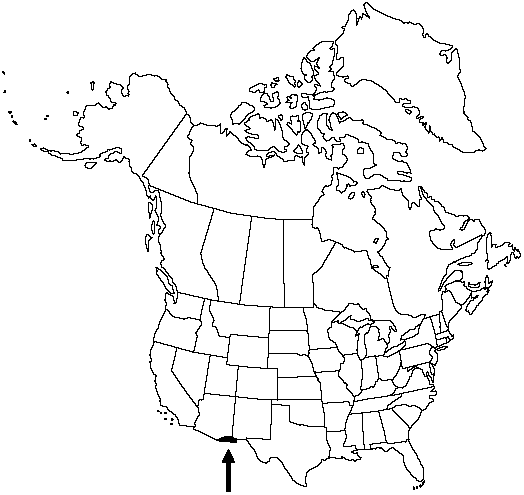Argyrochosma incana
Amer. Fern J. 77: 40. 1987.
Stem scales brown. Leaves 5–20 cm. Petiole black, 0.75–2 mm diam. Blade ovate, 3–4-pinnate proximally, leathery, abaxially covered by dense, white farina, adaxially glabrous; rachis rounded to slightly flattened adaxially. Pinna costae straight or nearly so, branches not arising from prominent angles. Ultimate segments articulate, dark color of stalks stopping abruptly at bases; segment margins plane, never concealing sporangia; veins obscure adaxially. Sporangia following secondary-veins for most of length, containing 64 spores. 2n = 54.
Phenology: Sporulating summer–fall.
Habitat: Sheltered cracks and ledges on canyon walls, restricted to rocks of volcanic origin in the flora
Elevation: 1200–1700 m
Distribution

Ariz., N.Mex., Mexico, West Indies in Hispaniola, Central America in Guatemala
Discussion
Argyrochosma incana has been collected at about 10 localities in the flora area, all within 50 km of the Mexican border. Most herbarium specimens were previously identified as A. limitanea, which is easily distinguished from A. incana by the characteristics given in the key. In addition, all known plants of A. limitanea have 32 spores per sporangium; those of A. incana have 64. Although A. incana shows considerable morphologic and biochemical diversity in Mexico, populations in the United States are relatively uniform.
Selected References
None.